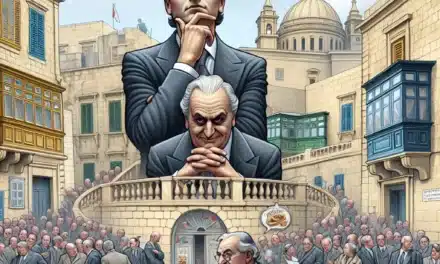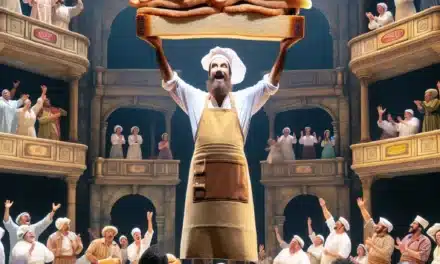The Topsy-Turvy Tale of Labour Reforms and Malta’s So-Called Economic Miracle
The Brouhaha in Birkirkara
Once upon a slightly humid afternoon, the quaint town of Birkirkara, known for its bustling market and the occasional traffic jam reminiscent of a pastizzi lineup, became ground zero for what would later be known as the Great Labour Reform Hullabaloo of 2023. At the center sat Toni, an affable chap whose mustache trembled with excitement as much as it did with fear.
“Toni, have you heard? The Prime Minister just declared that the secret to Malta’s economic success, mela, is labour reforms!” exclaimed Leli, his lifelong friend and confidant, whilst sipping a cup of tea strong enough to jump-start a bus.
Labour Reforms: Or Is It a Game of Musical Chairs?
The so-called reforms included a mandate that all employees must switch jobs every hour, in an effort to increase “cross-sectional industry expertise and foster empathy among workers.” It was a concept so revolutionary that even the bronze knights of Mdina looked like they were considering a career change.
“By fostering a deep, personal understanding of each trade, we anticipate a surge in camaraderie and satisfaction among workers, leading to unparalleled economic growth,” a spokesperson for the Prime Minister declared during an interview obstructed by a harried waiter delivering a tray of ħobż biż-żejt.
The Curious Case of the Disappearing Gozitan Ferry
But wait, there was a twist that not even the slyest Maltese rabbit stew could have predicted. A Gozitan ferry, known for transporting the country’s most diligent workers, vanished, only to be discovered moonlighting as a floating nightclub. The workers, bewildered yet curiously on beat, shrugged and adapted to their new roles as impromptu party promoters.
“I have no clue how to bartend,” confessed one ex-accountant as he accidentally invented a new cocktail involving Kinnie and Bajtra, “but hey, it seems to be paying off!”
Valletta Vignettes: An Economic Utopia?
The story reached its peak beneath the storied bastions of Valletta, where purportedly the economic boom was most evident. To investigate, we stumbled upon a reformed bureaucrat, now an avant-garde street performer who mimed the struggles of tax filing.
“Look at this, my friend,” gestured the mime, leading us through a series of invisible walls symbolizing Malta’s economic prowess.
But as dusk fell and shadows waltzed across the historic fortifications, it was clear something was amiss. The reforms had spun the city into a satire of productivity, where efficiency was measured not by output, but by the number of times one could pivot to a new profession in a day.
Epilogue: The Mirthful Meltdown?
So where did the satirical saga leave our unwitting hero, Toni? Embracing the chaos, he had become a part-time confectioner, matchmaker, and spaceship engineer, all before teatime. His tale, shared over a pint and a plate of hobz biz-zeit, became the buzz of the island, inspiring even the cats of Mdina to consider odd jobs.
In the end, “economic success” became the punchline to a joke only the kooky isle of Malta could concoct. And as Toni headed home to his flat above the very same pastizzi shop where he once was an accountant, he concluded it was all rather comical.
“Mela, who needs consistency when you’ve got variety, uwejja?” he chuckled, adjusting his array of name tags. “Tomorrow, I might just try being Prime Minister.”







Recent Comments